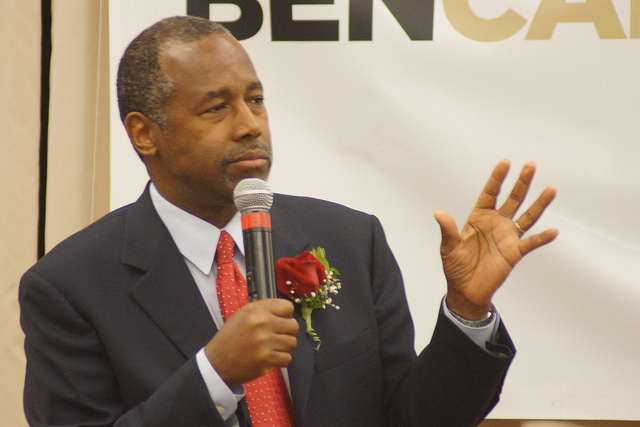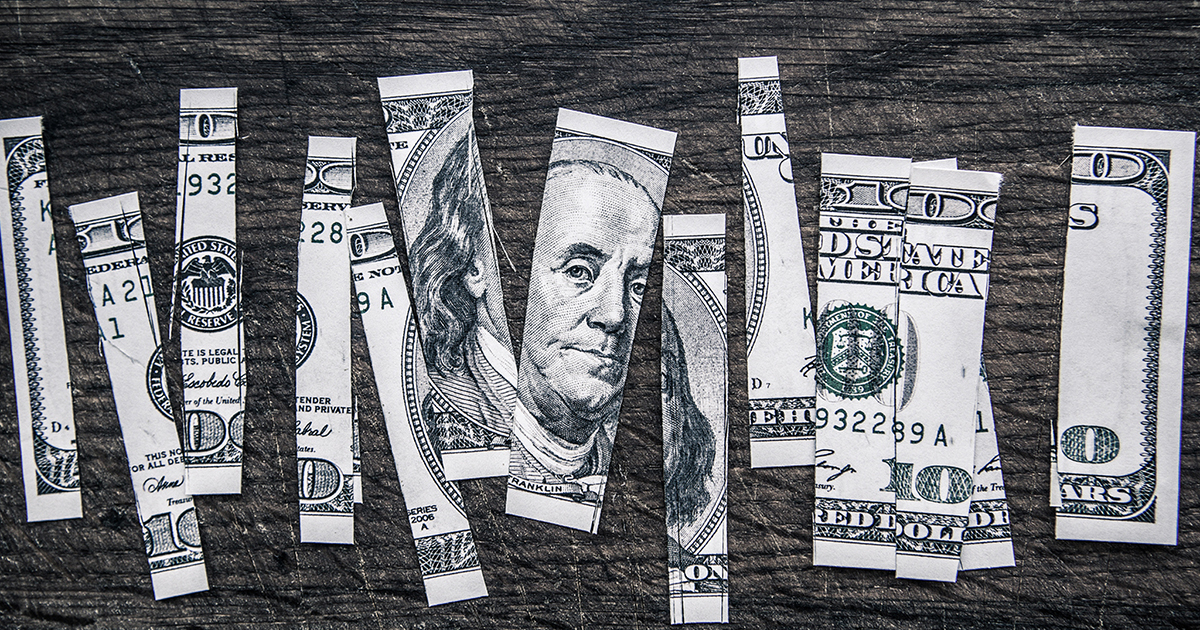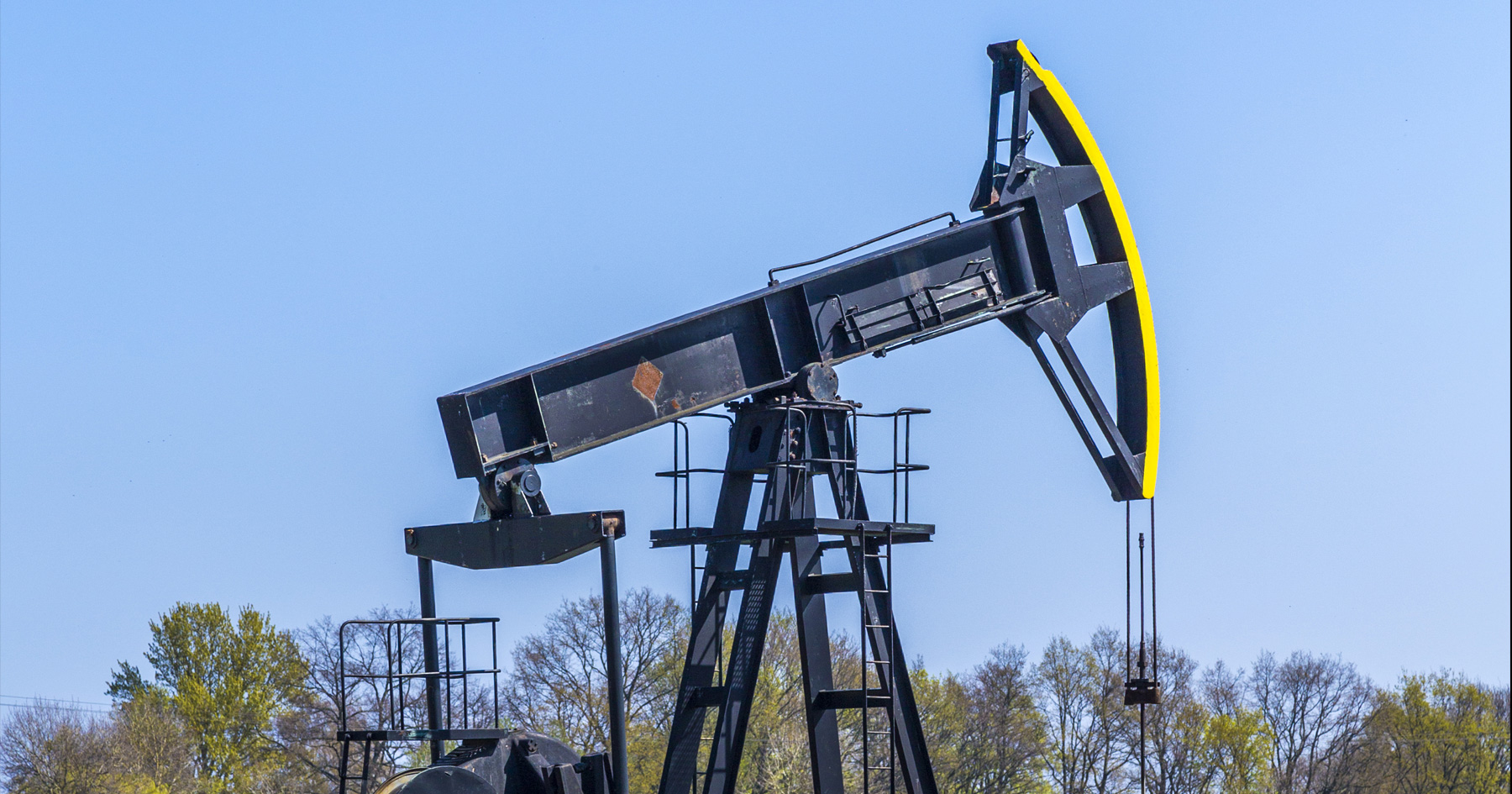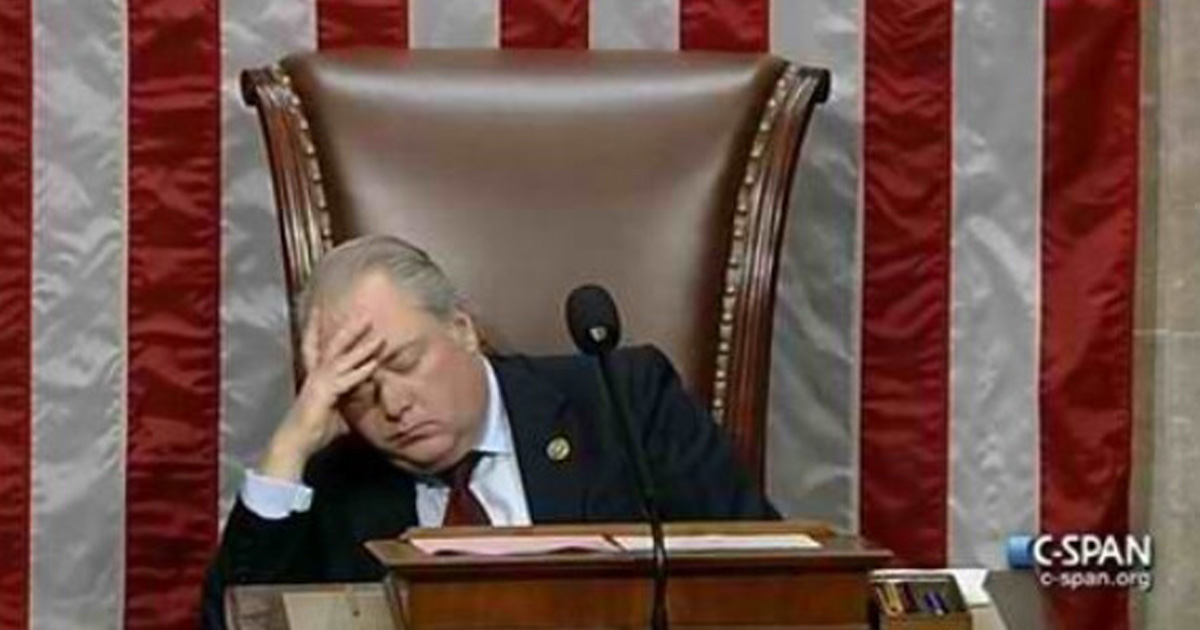White Men Dominate Trump's Cabinet Picks

By:
Over a month remains until Donald Trump takes office, but his cabinet selections are already setting back the clock when it comes to diversity.
Of the president-elect's nominees for cabinet positions, 11 out of 18 of them are white men.
"By selecting ExxonMobil CEO Rex Tillerson to serve as secretary of state, Donald Trump on Tuesday guaranteed that his four most influential departments will, if confirmed, be led entirely by white males for the first time since George H.W. Bush's first Cabinet was approved in 1989," CNN reports.
The former reality television host, for his part, tapped retired neurosurgeon Ben Carson to head the Department of Housing and Urban Development and selected Gov. Nikki Haley (R-S.C.), who is Indian-American, as U.N. ambassador.
 Marc Nozell / Flickr - flickr.com
Marc Nozell / Flickr - flickr.com
He also nominated former Labor Secretary Elaine Chao, the first Asian-American woman to serve in a presidential cabinet, for transportation secretary and chose Republican donor and education activist Betsy DeVos for education secretary.
However, Trump's cabinet picks are still quite a wealthy bunch, with many of the nominees hailing from the financial sector.
 Flickr/Tax Credits - flic.kr
Flickr/Tax Credits - flic.kr
The worth of Trump's picks, so far, is a whopping $14 billion with at least six known campaign donors.
"Three of them (including senior advisor Steve Bannon) are former Goldman Sachs executives. One of those, Steven Mnuchin, ran a bank that specialized in foreclosures in the wake of the Great Recession, and once foreclosed on a 90-year-old woman over a 27-cent payment error," Esquire reported. "The new Labor Secretary, Andy Puzder, will be tasked with advocating on behalf of workers; he is a staunch opponent of raising the minimum wage and a staunch proponent of automating as many jobs as possible—that is, eliminating jobs for human beings."
It's also important to note that a good deal of "the cash in the cabinet" is oil money.
 Jorg Hackemann - bigstockphoto.com
Jorg Hackemann - bigstockphoto.com
Secretary of State nominee Rex Tillerson and former Texas Gov. Rick Perry — who Trump tapped to head the Energy Department — both have ties to the oil and fossil fuel industries. Perry sits on the board of the company that owns the Dakota Pipeline, while Tillerson is the CEO of Exxon Mobil. Oklahoma Attorney General Scott Pruitt, who Trump selected for EPA administrator has been linked to powerful oil and gas companies in his state, the New York Times reports. Naturally, environmentalists and climate scientists are not thrilled.
Trump has also chosen a record number of former generals to serve under his administration. Gen. Mike Flynn, Gen. James Mattis and Gen. John Kelly were nominated for national security advisor, defense secretary and homeland security secretary, respectively. Mattis and Kelly served together in the Marine Corps during the Iraq War, the Hill reports.
These similarities suggest the cabinet's diversity problem isn't simply due to its disproportionate number of white men or their large wallets, but, also, the homogeneity of each nominees' views and experiences.
The average Trump nominee is a monolith that's arguably rich, white and conservative — and men from similar backgrounds often times tend to have similar values.
How Trump's team compares to recent cabinets.
A 2015 study conducted by University of California, Berkeley, School of Law professor Anne Joseph hailed the Obama administration as the most diverse presidency in U.S. history, the Washington Post reports.
.jpg?auto=format&crop=faces&fit=crop&q=60&w=736&ixlib=js-1.1.0) AP/Joshua Roberts - apimages.com
AP/Joshua Roberts - apimages.com
Former presidents George W. Bush and Bill Clinton also appointed diverse cabinets — though these selections didn't always translate into significant policy decisions on racial issues.
Obama nominated a black man — Attorney General Eric Holder — and a white woman, Sec. of State Hillary Clinton in his first term, CNN notes. Secretary of State Colin Powell was the first black man to occupy the position after Bush nominated him and he was confirmed.
The U.S. still has a long way to go in terms of diversity in politics.
Studies have shown that women and minorities continue to be underrepresented in U.S. politics.

Congress and state legislatures also suffer from a diversity problem, the Washington Post reported January. "Minorities make up almost 40 percent of the U.S. population, yet they fill less than a quarter of congressional and state offices," the Post reports.
Think Progress explained the importance of this point in a June report:
"The current Congress is mostly male, as men make up 80 percent of the seats in Congress while woman occupy only 20 percent. This lags far behind the 51 percent of the overall U.S. population that is female. Of the 50 state governors, 44 are men. In state legislatures, as of 2015, women controlled just under a quarter of the seats. The lack of diversity in state legislatures is especially problematic because about three-quarters of the members of Congress held government positions in their states before being elected, effectively making state legislatures one of the largest funnels bringing in new member of Congress."
Research illustrates that diversity in the workforce leads to better ideas, increased success and greater profitability, the Harvard Business Review explains.
As of Friday morning, Trump still has four cabinet picks to announce: Director of National Intelligence, Secretary of Agriculture, Secretary of Veterans Affairs, and U.S. Trade Representative.
Michelle Howard, who is in consideration for Secretary of Veterans Affairs, according to the New York Times, was the first woman and first black woman to become a four-star admiral in the U.S. Navy.
Four white women are included among the 14 contenders included in the Times report. Nine out of the 14 are white men.
